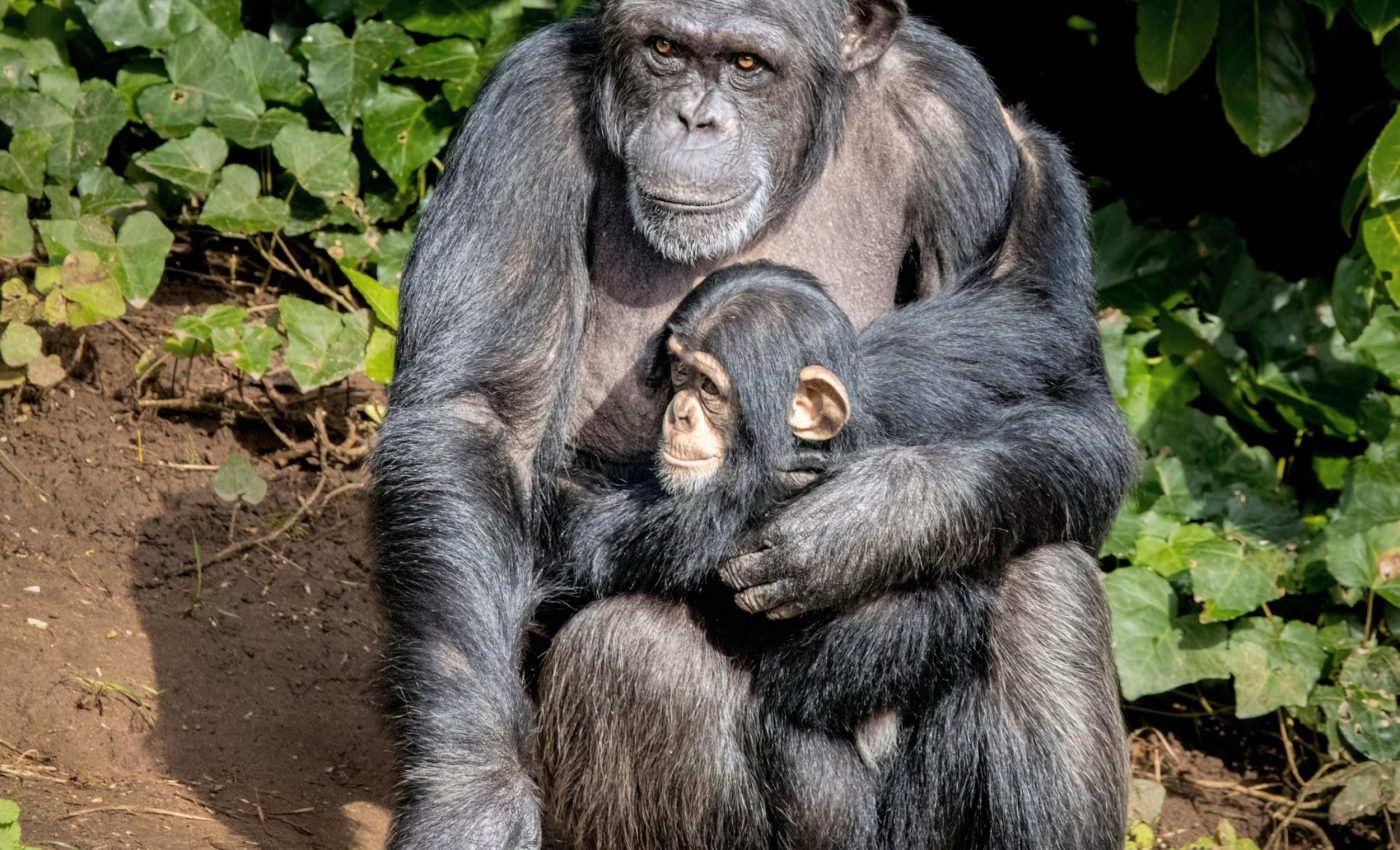
How a violent clash between chimpanzees ended in a baby boom
Chimpanzee behavior often looks familiar in surprising ways. Groups watch their territory borders, size up rivals, and make choices that shape their future.
These choices can change the health and success of an entire community. A new study from Uganda’s Kibale National Park shows how conflict among chimpanzees did exactly that.
The Ngogo group gained new land after a wave of violent clashes, and that shift changed the lives of mothers and infants inside the group.
Chimpanzee territory expanded
The Ngogo community pushed into a large patch of forest after killing members of neighboring groups. That new space opened doors to more food, safer resting spots, and easier foraging.
The research team had monitored this population for decades, so the territorial change appeared clearly in well-kept records. Once the group began using the new land, daily life shifted in many small ways.
Females spent less time competing at feeding sites. Males spent less time chasing intruders.
The forest felt different, and the numbers soon confirmed that difference. Births started rising fast, and survival rose even faster. The link between expansion and reproduction became impossible to ignore.
A clear jump in fertility
Females gave birth far more often once the group secured the extra territory. The three-year period after expansion produced more than twice as many infants as the three years before.
Age did not limit this trend. Younger chimpanzee females, middle-aged females, and older females all showed higher fertility after the territory change. Statistical models showed a clear jump in the chance of giving birth.
“Our findings provide the first direct evidence linking coalitionary killing between groups to territorial gain and enhanced reproductive success in chimpanzees.” said UCLA anthropologist Brian Wood.
Land with more resources
These results surprised even long-term observers. Energy balance changed once chimpanzee mothers gained access to territory with new feeding areas, and that shift likely helped them cycle more regularly.
The team checked other possible explanations, but none matched the pattern. The increase did not come mothers replacing infants that died young, and it did not come from a sudden rise in fruit inside the old territory.
The simplest explanation fit best. Access to new land helped mothers regain strength, and stronger mothers conceived more easily.
Chimpanzee survival in a new territory
Infant survival showed an even sharper jump. Before the expansion, many infants died before reaching age three. After the expansion, survival improved drastically.
Better nutrition likely played a role. Mothers with steady food intake can support infants through harsh seasons.
The community also faced fewer threats from outside groups. Neighboring communities often commit infanticide, and the earlier killings weakened those threats for a time.
As a result, more infants reached key milestones. Fewer losses meant longer intervals of stable childcare, and that stability shaped the community’s long-term growth.
The study modeled life histories under both conditions. Mothers living in the post-expansion period could expect several more surviving offspring across a lifetime than mothers living under earlier conditions. That difference changes the entire future of the population.
More space and food, less stress
The researchers examined other explanations carefully. Fruit levels inside the original territory did not suddenly rise after expansion. Some measures even showed slight declines.
The pattern of births also did not match a case where mothers replace lost infants quickly, because survival of young actually improved, it did not get worse.
The idea that more females lacked dependent infants also failed, since records showed no such shift.
After ruling out these options, the evidence pointed firmly to the territory gain itself. New land meant more space, more food patches, less stress, and less risk.
These conditions matched long-standing studies showing how nutrition shapes fertility in primates. When mothers maintain better energy balance, they reproduce more successfully. Infant survival follows the same rule.
Territory context for chimpanzees
These findings touch a deeper argument in primate research. Some claim that lethal aggression in chimpanzees comes from human disturbance. Others view it as an evolved strategy.
The Ngogo community offers a powerful case because the forest around it remains largely undisturbed. Human activity cannot explain the expansion or the reproductive surge that followed. The pattern instead supports the adaptive view.
The research team noted that improved access to food and reduced threats explain the reproductive gains.
“When food is scarce, territorial gains can translate into real reproductive advantages,” explained Wood.
“Humans have, thankfully, evolved an extraordinary capacity to resolve and avoid such conflicts, offering a way to escape cycles of food scarcity, territorial violence, and zero-sum competition among neighboring groups.”
The next chapter in the story
The study does not claim that humans evolved in the same way, but it does show how territorial shifts can shape life histories in powerful ways.
Conflict changed the biology of this chimpanzee group, and that change will echo for generations.
The next chapters in the Ngogo’s story will likely reveal how these gains influence leadership, alliances, and the future structure of the group.
The study is published in the journal Proceedings of the National Academy of Sciences.
—–
Like what you read? Subscribe to our newsletter for engaging articles, exclusive content, and the latest updates.
Check us out on EarthSnap, a free app brought to you by Eric Ralls and Earth.com.
—–













